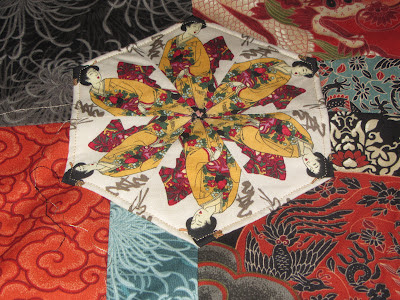My order of vegetable seeds has arrived from Johnny's Selected Seeds in Maine.
This is who helped open the package.
Zia or "Zee" is a Maine Coon. Her assistance, in this case, is appropriate since the seeds came from Maine. After her hard work, she took a break.
Back to the box.
I ordered three kinds of beans. Most gardeners sow beans in spring. In Central California, they are best planted in August. The plants will grow if they are planted in the spring, but by the time they are ready to set fruit, the weather is too hot. The result is no pods. I have had success with the purple snap beans in the past so will try those as well as a small planting of a few other varieties.
Come September, it will be time to plant the carrots, turnips, and greens.
I also ordered something called Pacific Gold Mustard. It is not to eat.
There are microscopic worms in some soils called nematodes. They are prevalent here. You know you have them when you pull up your old vegetable plants--particularly beets and tomatoes--and there are big nodules on the roots. Many tomato varieties have been developed that are somewhat resistant to the nematodes and carry on in spite of them. Other crops don't do so well.
The first line of defense against the nematodes is to keep a healthy soil with lots of organic matter added. There are also beneficial nematodes that can be purchased and mixed into the soil. My understanding is that they destroy the bad nematodes. They, too, are microscopic and come in a refrigerated carton at garden centers. This method does help, but only to a point.
Another method is to cover your garden soil over with plastic for a number of hot months to effectively bake the nematodes. The soil is then tilled, and finally, covered again for a certain amount of time. That means your garden will be unavailable for that particular growing season.
There are also fumigants such as methyl bromide than are used in commercial applications. According to my local garden center, ordinary home gardeners are not allowed to purchase those.
It has been my experience that none of the methods seem to be a good solution for home gardeners.
As I was ordering my seeds from Johnny's, something caught my eye. I was looking for mustard greens to grow for eating, but also found a listing for the Pacific Gold Mustard. Apparently, it is a cover crop, which means it is to be grown to just before it begins to develop seeds, then tilled into the soil. The plant matter is supposed to control the nematodes and soil fungus!
Since all of my garden is in raised beds, I suppose I will have to try the mustard in a few beds at a time and rotate crops. It will be interesting to see if the mustard plants work.

















































